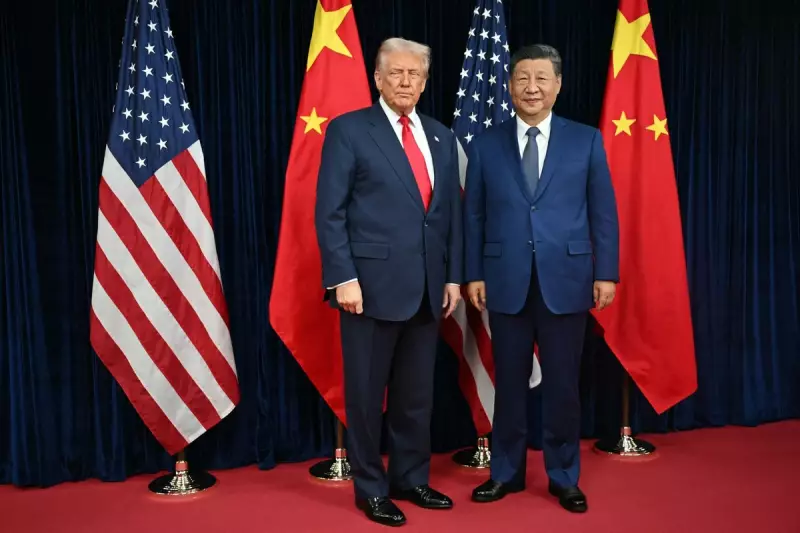
In a move that could reignite global economic tensions, former President Donald Trump has declared he will impose devastating new tariffs on Chinese imports if he returns to the White House. The controversial announcement comes as Trump prepares for a high-stakes meeting with Chinese President Xi Jinping.
The Tariff Threat Returns
Speaking to conservative media, Trump revealed his plans to escalate the trade war that defined much of his presidency. "I will impose tariffs that are even larger than before," he stated, suggesting the measures could potentially exceed the 60% mark that has been circulating in political circles.
The former president's bold declaration signals a dramatic hardening of his stance toward Beijing, raising concerns among economists and trade experts about another round of global market instability.
California Showdown Looms
All eyes are now on San Francisco, where Trump is expected to meet with President Xi during the Asia-Pacific Economic Cooperation summit. This encounter marks their first face-to-face discussion since Trump left office, setting the stage for a crucial diplomatic confrontation.
Analysts suggest this meeting could determine whether the world's two largest economies are headed toward another period of intense trade friction or if diplomatic channels can prevent further escalation.
Economic Fallout Feared
The prospect of renewed trade warfare has sent shockwaves through international markets. During his previous administration, Trump imposed tariffs on approximately $350 billion worth of Chinese goods, triggering retaliatory measures from Beijing that affected American agricultural exports and manufacturing sectors.
Economists warn that another round of tariffs could:
- Drive up consumer prices significantly
- Disrupt global supply chains still recovering from pandemic shocks
- Potentially trigger a new wave of inflation
- Damage international trade relationships
Political Calculations
Trump's aggressive trade posture appears calculated to bolster his 2024 presidential campaign, where he remains the frontrunner for the Republican nomination. His tough-on-China rhetoric has consistently resonated with his political base, though it has drawn criticism from some business leaders and international allies.
The Biden administration has maintained several of Trump's original China tariffs while pursuing a more measured approach to trade relations. However, Trump's latest threats suggest a potential return to the confrontational tactics that defined his first term.
As the world watches the upcoming Xi-Trump meeting, the stakes for global economic stability have never been higher. The outcome could shape international trade dynamics for years to come.





